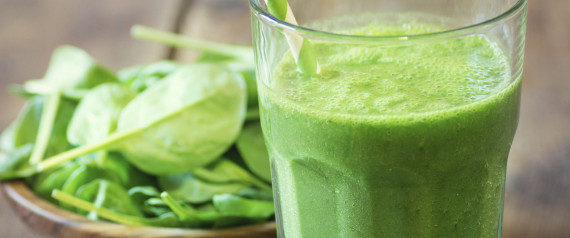
"Pop quiz. Which of the following is considered a processed food: Kellogg's Corn Flakes, homemade greek yogurt, bagged baby spinach? (Answer: All of them.)
The point here, is that "processed foods" includes a much wider variety of products than most consumers typically associate with the term. Secondly, not all processed foods are evil. Processed foods can provide convenience, like in the case of bagged baby spinach, or safety, as in the case of pasteurized eggs, and can even -- gasp -- be healthy.
"The idea of saying just avoid processed foods is crazy," Dawn Jackson Blatner, RD, CSSD, LDN, told The Huffington Post. "Yogurt is a processed food. It’s actually been cultured and packaged. Canned beans, with no other ingredient besides beans, is processed because [the beans] have been cooked and they have been canned." Where Blatner draws the line with her endorsement is with extremely processed foods, which logically enough, is also where things start to get murky for consumers.
And while this may seem like an issue of semantics -- after all, when most people say "processed," they expect others understand this to be a colloquial term for "unhealthy" -- the lack of a clear and official definition for what qualifies as a heavily processed foods is extremely controversial in the nutrition community. A new study published in the American Journal of Clinical Nutrition in May, has set out to clarify and define what, exactly, is meant by the term.
The U.S. government defines processed food as "any food other than a raw agricultural commodity and includes any raw agricultural commodity that has been subject to processing, such as canning, cooking, freezing, dehydration, or milling." That seems clear enough. But there's no agreed upon definition for extremely processed foods, the stuff that nutritionists like Blatner say we should be avoiding at the grocery store.
As the researchers write in the study, "The U.S. government’s definition of 'processed food' -- any food other than a raw agricultural commodity -- includes a diverse array of foods ranging from frozen vegetables, dried fruit, and canned beans to whole-wheat bread, breakfast cereals, prepared meals, candy and soda." Basically, any category that includes both soda and frozen vegetables is too broad to help consumers make healthy eating choices.
To help break things down, the researchers divided 1.2 million food products into four distinct categories: minimally processed, basic processed, moderately processed and highly processed. In the study, highly processed food were defined as "multi-ingredient industrially formulated mixtures processed to the extent that they are no longer recognizable as their original plant or animal source."
Americans are buying highly processed foods in large quantities. According to the study, 61 percent of our calories come from these highly processed foods, including refined bread, lunch meat, soda, alcohol, and condiments like salsa and hummus. These foods were also higher in fat, sugar and sodium than their less-processed counterparts.
Outside of the research world, dividing your shopping chart into four processing categories probably isn't realistic. So what should a health-conscious shopper do? For starters, Blatner recommends reading nutrition labels from the bottom up, starting with the ingredient list. Shoppers should keep an eye out for nutritional red flags: chemicals they don't use in their own kitchens; refined sugar and flour; artificial sweeteners, flavors and colors; and preservatives (ingredients starting with a string of letters, like BHA and BHT). The more of these red flags on the ingredient list, the higher the chance that the item is highly processed and probably not a smart purchase from a nutritional standpoint.
The important takeaway here is that people are using the same word to mean two very different things. Food manufactures choose to say that every food is processed, ignoring the fact that not all processed foods have equal health profiles. Health food advocates, on the other hand, may toss the term around incorrectly, as a catchall for anything they consider unhealthy.
"It’s not demonizing processed foods," Blatner said. "Let’s put an actual word ahead of that –- extreme processing -- and then let’s define that together."
See some surprisingly processed -- but still healthy -- foods:"